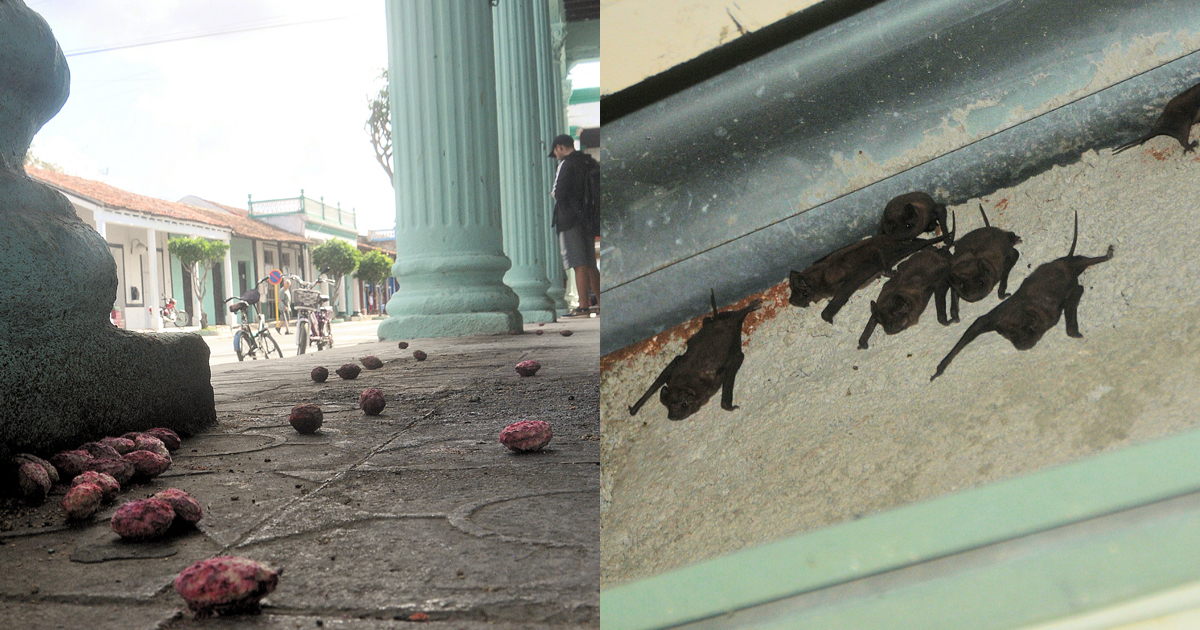Two neighborhoods, the city center, schools, universities, restaurants, and markets in Las Tunas are being besieged by an overpopulation of bats. To protect themselves, families are forced to sleep under mosquito nets. The Office of Environmental Regulation and Safety advises scaring them away, but not killing them "under any circumstances" as they are protected by Law 150 of the Natural Resources and Environment System.
"There are children and elderly people living with them in their homes. In some places, people sleep all the time with mosquito nets because the bats fly around at night in the high ceilings. There is concern about the health risk due to exposure to their excrement (guano) and urine," said Manuel Jiménez, delegate of constituency 11 of Popular Council 1 in Las Tunas, to the local newspaper Periódico26. He noted that bats can transmit histoplasmosis (an infection caused by inhaling spores found in their droppings) and the rabies virus.
Despite these risks, "some homes on Vicente García Street, near places like the El Tunero market or the 2007 restaurant, are permanently besieged by bats." In fact, they have colonized the San Gerónimo parish. "They also affect the special semi-boarding school Camilo Cienfuegos. You can clearly see it during the day because the guano remains on the walls and the stench lingers," added the delegate, who assured that he has reported this issue "repeatedly" because residents "complain persistently," but experts from the Directorate of Hygiene and Epidemiology have never responded.
"It's enough to walk down Vicente García Street when night falls or as the day breaks to see them flying around the portals, forcing passersby to leave and continue their way, often down the middle of the street," notes the official newspaper. It mentions that among those suffering most from the bat invasion are the guards who watch over state enterprises at night. They do so, it adds, while wearing masks and being forced to listen to the bats' sounds all night long.
The delegate also mentioned that there have been "reports of bats consistently present in places like the University of Medical Sciences, in areas of the Buena Vista and Aguilera neighborhoods, as well as the city center, which has several areas affected by a notable colony, including both homes and workspaces."
Bats are often seen in empty spots near their preferred food sources: fruits, insects, flies, termites, nectar, flower pollen, and even fish, depending on the species. To scare them away, it is recommended, among other things, to "illuminate the sites," especially now that Las Tunas is suffering from severe power outages. In fact, five days ago, residents took to the streets to protest with pots and pans.
Other suggestions for those affected include "covering the gaps through which they can enter, using smells that repel them, and sounds of animals that are their natural predators."
Common Questions About Bat Infestation in Las Tunas
Given the ongoing bat infestation in Las Tunas, residents and local authorities have raised several questions. Here are some frequently asked questions and their answers:
What health risks do bats pose to humans?
Bats can transmit histoplasmosis, an infection caused by inhaling spores found in their droppings, as well as the rabies virus.
What measures can be taken to scare away bats?
Recommendations include illuminating affected areas, covering entry gaps, using repellent smells, and playing sounds of their natural predators.
Are bats protected by any laws in Cuba?
Yes, bats are protected by Law 150 of the Natural Resources and Environment System, which prohibits killing them under any circumstances.
Why haven't the authorities responded to bat infestation reports?
Despite repeated complaints, experts from the Directorate of Hygiene and Epidemiology have not addressed the issue, leaving residents to deal with the problem on their own.
